| WWII-Era And Censored |
| Item # |
|
US$ | ||
| 229779 |
173 [1936 2m Red M-30 Lion] (VF) 1940 (date unclear, but looks like February) Finnish-censored cover to Sweden. Winter War usage.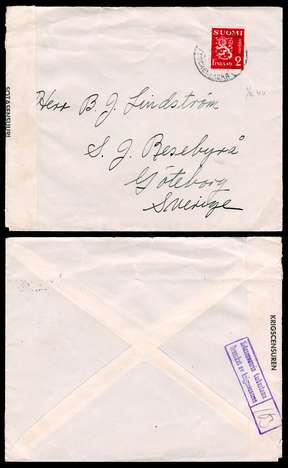 ACTUAL item. |
12.00 |
||
| 229780 |
B43 pair [1940 2m Fatherland, Coat of Arms Semi-postal] (F-VF+) on 22 February 1940 attractive Finnish-censored cover from BRANDO-VASA (as opposed to the Brando located in Aland), to the U.S. Excellent quality; extremely scarce war-time usage of semi-postal stamps to overseas destination.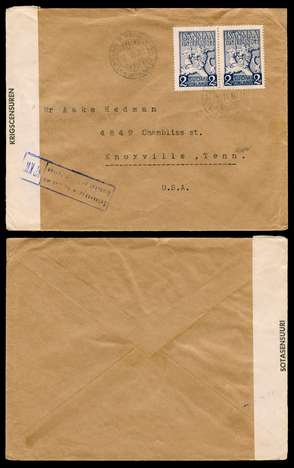 ACTUAL item. |
50.00 |
||
| 229823 |
226 pair [1941 3.50m Viborg Castle] on 15 December 1942 Continuation War Soldier Letter sent airmail to Denmark. Violet, boxed, sans-serif KENTTÄPOSTIA hand stamp (unusual type) on stamps plus "KENTTAPOSTI / KONTTORI Nr 7" machine cancellation. Censored by Finland and Denmark (German). From Corporal S. Theslett, possibly a Danish volunteer fighting in Finland. Regardless, a very scarce usage.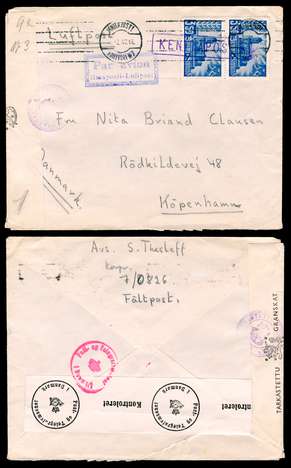 ACTUAL item. |
55.00 |
||
| 229830 |
B50 [1943 5.50 + 35 Red Cross Semi-postal] (VF) solo use on 6 April 1943 cover from HELSINKI (machine cancellation promoting saving) to Sweden. Finnish censored. From one philatelist to another - on reverse has large red boxed hand stamp that appears (text is unclear) to signify PHILATELIC CENSORSHIP. Such philatelic censorship was also done in Norway and England, but I do not recall seeing any other Finnish examples. RARE!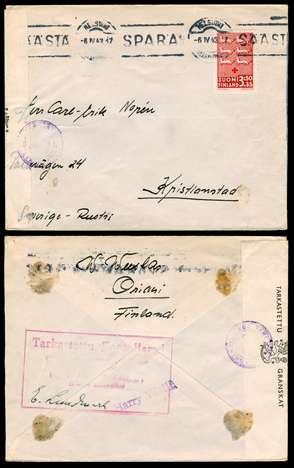 ACTUAL item. |
100.00 |
||
| 243297 |
Finland Scott #176D [1945 5 mk blue M-30 Lion] (VF) on 8 January 1946 cover from MARIEHAMN to Stockholm, Sweden. Censored with Finnish #63 violet censor handstamp. The Nordic 20 gram letter rate of 5.00 mk was in use for only a short time: 1 July 1945 through 15 January 1946. Post-WWII Åland censored covers are scarce -- this may be the latest example I have seen. A very nice cover.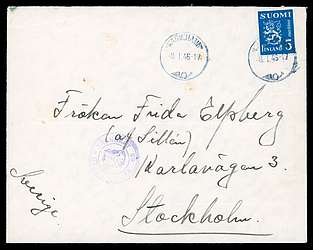 ACTUAL item. |
45.00 |